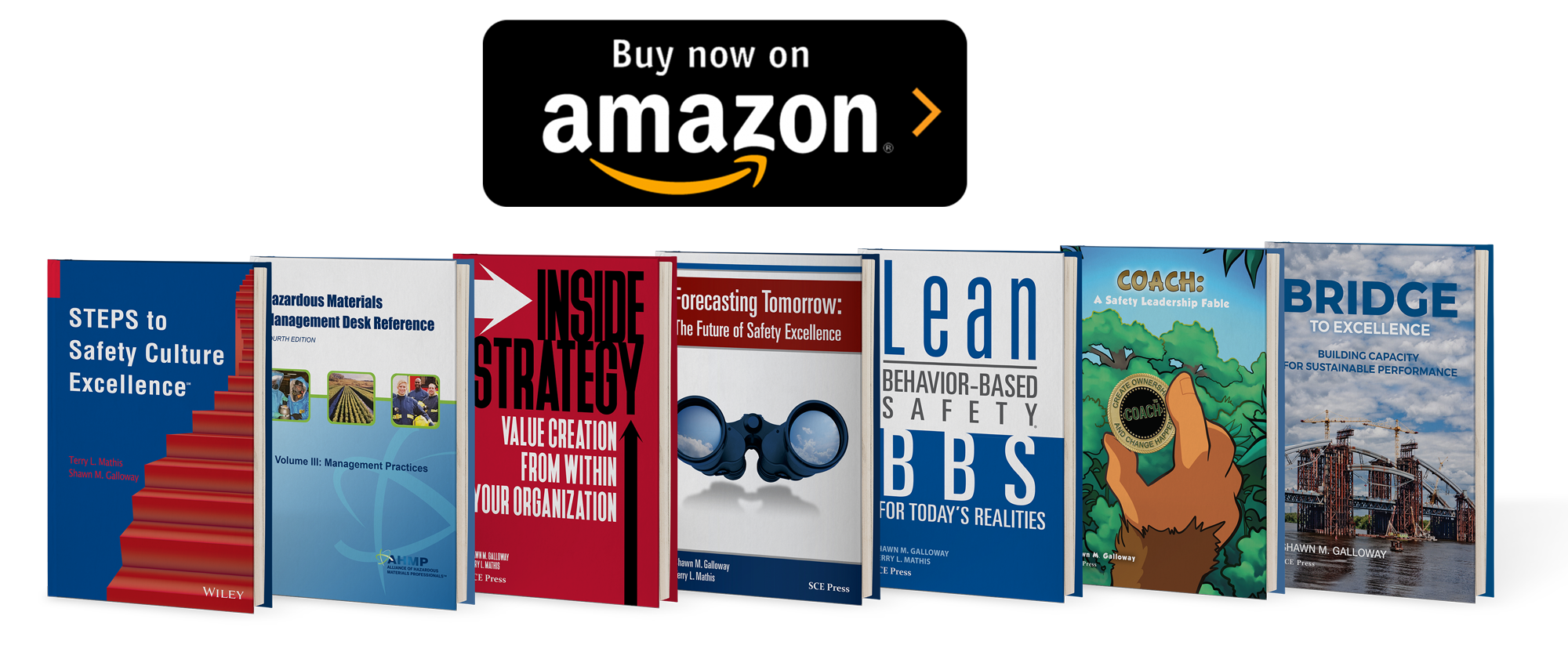BIC - September 2014
By: Shawn M. Galloway
Printable Version
Effective behavioral safety programs teach us to determine influences on employee behavior before finding fault and placing blame. Knowing this, why are many safety professionals often so quick to place blame with leaders for their perceived lack of support? Are we jumping to conclusions and indicting them, or are we holding ourselves responsible for enabling them and inviting them into the safety discussion?
We try harder each year to embed safety thinking into the fabric of organizational communication and thinking, but are we speaking the same language as our business colleagues? And are we embedding business thinking into the fabric of safety communication and thinking?
It is easy to place blame with individuals or levels of an organization that are not easily accessible. Far too often safety leaders are overheard indicting the top leader of an organization based on his/her perceived lack of support. Do these safety leaders know for certain their CEO only cares about bottom-line growth and safety is not of business or personal concern? It is easy to infer beliefs based on the observed behaviors of leaders, but easy doesn't imply accurate. We are much more complicated than that.
Most senior leaders have risen to their levels based on their abilities to align resources toward measureable success, resulting in an increase in shareholder value. They can get things done they feel their boss — i.e., shareholders and board members — sees value in.
CEOs are obligated to regularly present results, status and information that have the potential to increase or erode shareholder value. Safety performance and culture do both. Undesirable safety results and events are becoming more newsworthy with every incident. For many companies, the indirect long-term costs in the form of negative press and community perception will far outweigh the actual costs and litigation of incidents and injuries.
On the other hand, great safety performance and cultures of excellence have provided many clients a sustainable, competitive advantage. Does your CEO recognize this? If so, how is this information leveraged in annual reports, financial statements, company values and vision, and in the business development efforts for your company's products and services? If not, is it the business leader's responsibility to discover this on his/her own? Or, is it the safety executive's responsibility to notice this?
Many countries are taking new steps to hold leaders accountable for injuries and incidents, but this is reactive and not the best use of resources. Indictments occur after events happen. We cannot expect accountability to be effective for anyone at any level when we incorrectly understand the power of accountability. Accountability should be more proactive than reactive and should focus on responsibility for performance that contributes to results, rather than just the results themselves. We should not indict anyone when we fail to help them see how what they do contributes to the results, whether they are CEOs or hourly employees.
If we view our jobs as changing the way CEOs think about things, we can be fighting an uphill battle, especially if safety professionals are viewed only as a technical resource within the company. If, however, we concentrate on our responsibility to improve the lives of those affected by safety efforts and performance, we move from a technical, process and cost focus to that which adds value. When we add value to the individual, department or any other facet of operational performance, customers and shareholders see value. When value is recognized in effort and performance, CEOs start inviting themselves into the discussions and everyone wins.
 Shawn M. Galloway is the CEO of ProAct Safety and co-author of several bestselling books. As an award-winning consultant, adviser, leadership coach and keynote speaker, he has helped hundreds of organizations within every major industry to improve safety strategy, culture, leadership and engagement. He is also the host of the highly acclaimed weekly podcast series Safety Culture Excellence®.
Shawn M. Galloway is the CEO of ProAct Safety and co-author of several bestselling books. As an award-winning consultant, adviser, leadership coach and keynote speaker, he has helped hundreds of organizations within every major industry to improve safety strategy, culture, leadership and engagement. He is also the host of the highly acclaimed weekly podcast series Safety Culture Excellence®.
For more information, call (936) 273-8700 or email info@ProActSafety.com.
